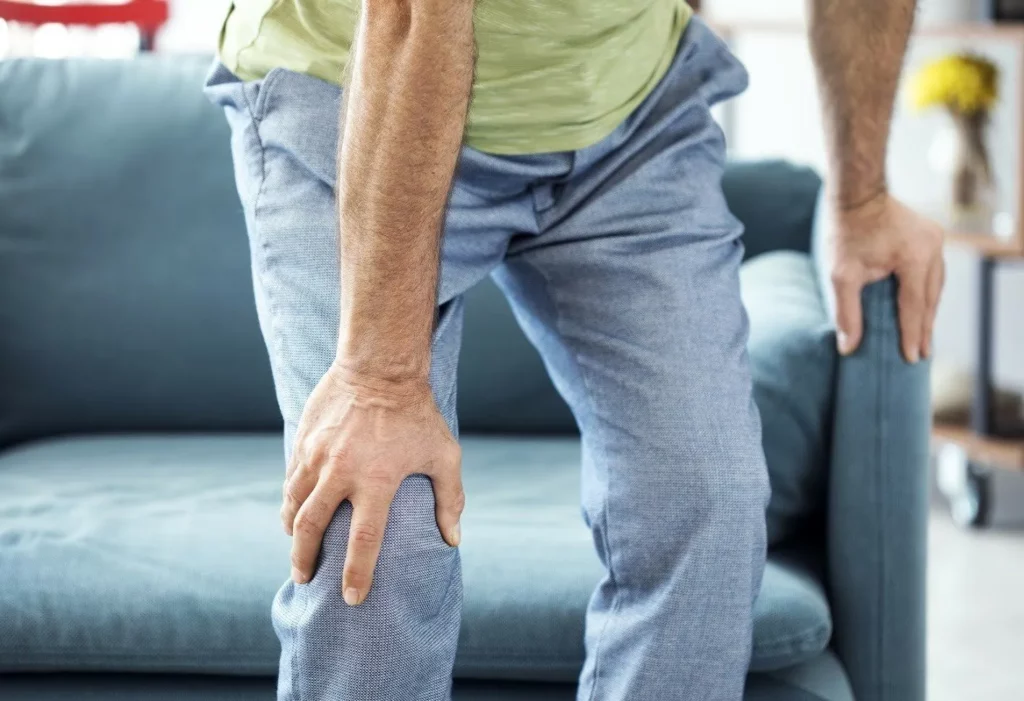Excellence in Rheumatology Care since 1977. Accepting New Patients
Mar 24, 2020
Have you noticed that your arthritis symptoms come and go — even with medication? Flare-ups are periods of increased severity in your symptoms, such as increased stiffness, swelling, and joint pain. Some people attribute flare-ups to the natural progression of their disease, like in osteoarthritis. However, flare-ups can happen for other reasons too.
Learn about four possible reasons you may be having an increase in symptoms.
1. Weather Changes
Researchers have found that people with arthritis may be sensitive to weather changes — especially if it’s cold and wet outside. Doctors aren’t sure about the exact reason this happens, but they have a few theories. For instance, low temperatures can make the fluid in joint capsules thicker, so your joints may feel stiffer.
Some researchers believe that changes in the atmospheric pressure may cause muscles, scar tissue, and tendons to expand and contract, which may cause pain in joints affected by arthritis. Because arthritis wears away the cartilage that cushions bones and exposes nerves, the change in atmospheric pressure might also affect these nerves.
Another reason people may get a flare-up during poor weather is because they are just more sedentary during bad weather. If your health allows, stay active — even on cold and rainy day — since physical activity can prevent pain and joint stiffness. A gym membership can give you a warm place to work out during the colder months.
2. Wrong Diet
Your diet can play a huge role in either exacerbating or preventing arthritis flare-ups. Some foods have advanced glycation end products (AGEs). Foods that are high in AGEs can damage proteins in your body and can cause inflammatory responses that increase your arthritis flare-ups. Some foods that are high in AGEs are:
These are just a few types of foods that can cause arthritis flare-ups. You’ll want to talk with your doctor for more information on which foods may help or hinder your symptoms.
3. Undiagnosed Autoimmune Disease
If your family has a history of arthritis, then you may just assume that your arthritis is the root cause of all your symptoms. However, arthritis can sometimes be a symptom of a larger issue, like an autoimmune disease.
For instance, psoriatic arthritis develops in people with psoriasis. While psoriasis usually develops first and manifests skin problems, some people with psoriatic arthritis develop joint problems before skin problems. It’s a good idea to visit a doctor so that you can narrow down which type of arthritis you have and if it’s related to an autoimmune disease.
Diabetes Type-I is an autoimmune disorder linked with rheumatoid arthritis and osteoarthritis. If a person with diabetes hasn’t been diagnosed, the doctor may just treat the arthritis without getting to the root cause.
In short, if you’ve only treated your arthritis but are still having problems, then you may have another underlying problem that you haven’t adequately treated yet.
4. Poor Sleep
Some arthritis sufferers blame their symptoms for getting poor sleep, but researchers have found that the inverse is also true. If you don’t get a good night’s sleep, your arthritis symptoms may be worse the next day.
It’s important to develop good sleep hygiene. This means that you should limit your intake of caffeine, avoid electronic devices before bed, and stick to a sleep schedule. You may have an underlying sleep disorder, like sleep apnea, that could be hindering your sleep quality, which in turn may be causing your arthritis symptoms to flare.
Reach out to us at Sarasota Arthritis Centerfor more information about treating your arthritis and how to reduce flare-up triggers.

3 Fundamental Points for Understanding Bursitis
If you have swollen and painful joints, you could be suffering from bursitis. This condition occurs when bursa sacs become inflamed.

How Trauma Can Lead to Early Arthritis Issues
If you are heavily involved in an activity or sport, then you could suffer injuries that will result in early onset arthritis later on.

Is It Rheumatoid Arthritis? 6 Conditions That Share Symptoms
Joint pain is perhaps the most prominent symptom of rheumatoid arthritis (RA), but the presence of joint discomfort can also indicate the presence of a variety of other conditions.



We are able to see patients by appointment only. If you need to cancel an appointment, please contact our office at least 24 hours in advance. To expedite the check-in process prior to your appointment, please complete the pre-registration paperwork that will be emailed and texted to you through Phreesia. Please bring your insurance cards, method of payment, and identification with you to every appointment.